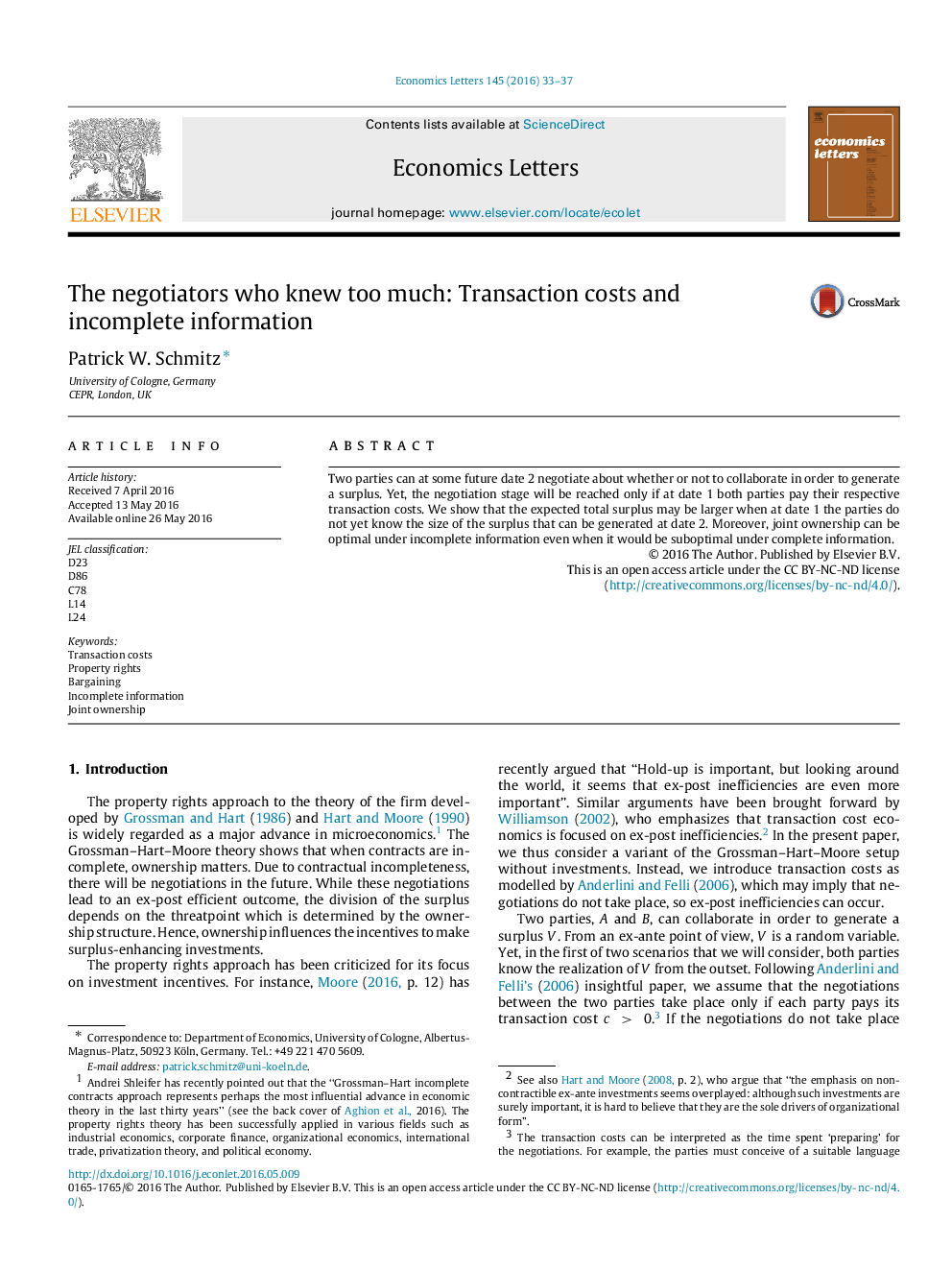| Article ID | Journal | Published Year | Pages | File Type |
|---|---|---|---|---|
| 5058182 | Economics Letters | 2016 | 5 Pages |
Abstract
Two parties can at some future date 2 negotiate about whether or not to collaborate in order to generate a surplus. Yet, the negotiation stage will be reached only if at date 1 both parties pay their respective transaction costs. We show that the expected total surplus may be larger when at date 1 the parties do not yet know the size of the surplus that can be generated at date 2. Moreover, joint ownership can be optimal under incomplete information even when it would be suboptimal under complete information.
Keywords
Related Topics
Social Sciences and Humanities
Economics, Econometrics and Finance
Economics and Econometrics
Authors
Patrick W. Schmitz,
